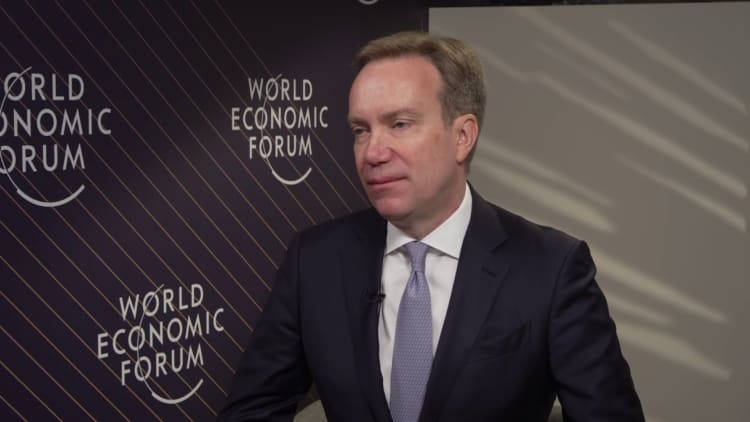WEF president: ‘We haven’t seen this kind of debt since the Napoleonic Wars’

Borge Brende, president of the World Economic Forum, gave a stark outlook for the global economy saying the world faces a decade of low growth if the right economic measures are not applied.
Speaking Sunday at WEF’s “Special Meeting on Global Collaboration, Growth and Energy for Development” in Riyadh, Saudi Arabia, he warned that global debt ratios are close to levels not seen since the 1820s and there was a “stagflation” risk for advanced economies.
“The global growth [estimate] this year is around 3.2 [%]. It’s not bad, but it’s not what we were used to — the trend growth used to be 4% for decades,” he told CNBC’s Dan Murphy, adding that there was a risk of a slowdown like that seen in the 1970s in some major economies.
“We cannot get into a trade war, we still have to trade with each other,” he explained when asked about avoiding a period of low growth.
“Trade will change and global value chains — there will be some more near-shoring and friend-shoring — but we shouldn’t lose the baby with the bathwater … Then we have to address the global debt situation. We haven’t seen this kind of debt since the Napoleonic Wars, we are getting close to 100% of the global GDP in debt,” he said.
He said governments needed to consider how to reduce that debt and take the right fiscal measures without getting into a situation where it kicks off a recession. He also motioned persistent inflationary pressures and that generative artificial intelligence could be an opportunity for the developing world.
Borge Brende, president of the World Economic Forum (WEF).
Bloomberg | Bloomberg | Getty Images
His warning chimes with a recent report from the International Monetary Fund which noted that global public debt had edged up to 93% of GDP last year, and was still 9 percentage points higher than pre-pandemic levels. The IMF projected that global public debt could near 100 % of GDP by the end of the decade.
The Fund also singled out the high debt levels in China and the United States, saying loose fiscal policy in the latter puts pressure on rates and the dollar which then pushes up funding costs around the world —exacerbating pre-existing fragilities.
Earlier this month, the International Monetary Fund raised its global growth forecast slightly, saying the world economy had proven “surprisingly resilient” despite inflationary pressures and monetary policy shifts. It now expects global growth of 3.2% in 2024, up by a modest 0.1 percentage point from its earlier January forecast.
WEF’s Brende said Sunday that the biggest risk for the global economy is now “the geopolitical recession that we are faced with,” highlighting recent Iran-Israel tensions.
“There is so much unpredictability, and you can easily get out of control. If Israel and Iran escalated that conflict, we could have seen an oil price of $150 overnight. And that would of course be very damaging for the global economy,” he said.
Source – Middle east monitor




